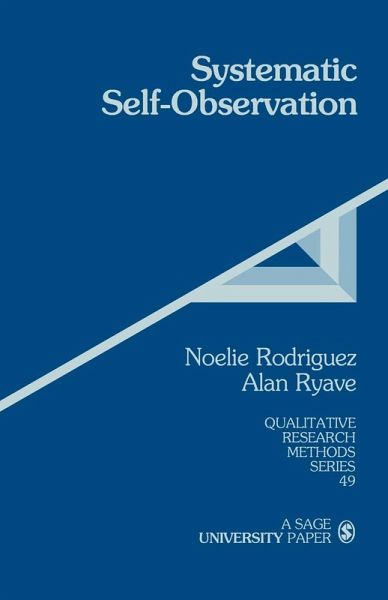
Systematic Self-Observation
A Method for Researching the Hidden and Elusive Features of Everyday Social Life
Versandkostenfrei!
Versandfertig in 1-2 Wochen
43,99 €
inkl. MwSt.

PAYBACK Punkte
22 °P sammeln!
Systematic self-observation (SSO) is a valuable research method used by social scientists to gather information about those social actions that are hidden, restricted or subjective. The advantage of using self-observation over another research method, such as interviewing, for these types of actions is that the observer in SSO is the same as the obervee. This is the only way one can successfully measure thoughts, emotions and other criteria that are not always openly displayed. The authors provide a practical explanation and instruction to carrying out an systematic self-observation study. The...
Systematic self-observation (SSO) is a valuable research method used by social scientists to gather information about those social actions that are hidden, restricted or subjective. The advantage of using self-observation over another research method, such as interviewing, for these types of actions is that the observer in SSO is the same as the obervee. This is the only way one can successfully measure thoughts, emotions and other criteria that are not always openly displayed. The authors provide a practical explanation and instruction to carrying out an systematic self-observation study. They include case studies of four aspects of hidden or elusive everyday social actions: lying, telling secrets, withholding compliments and feeling envy.














